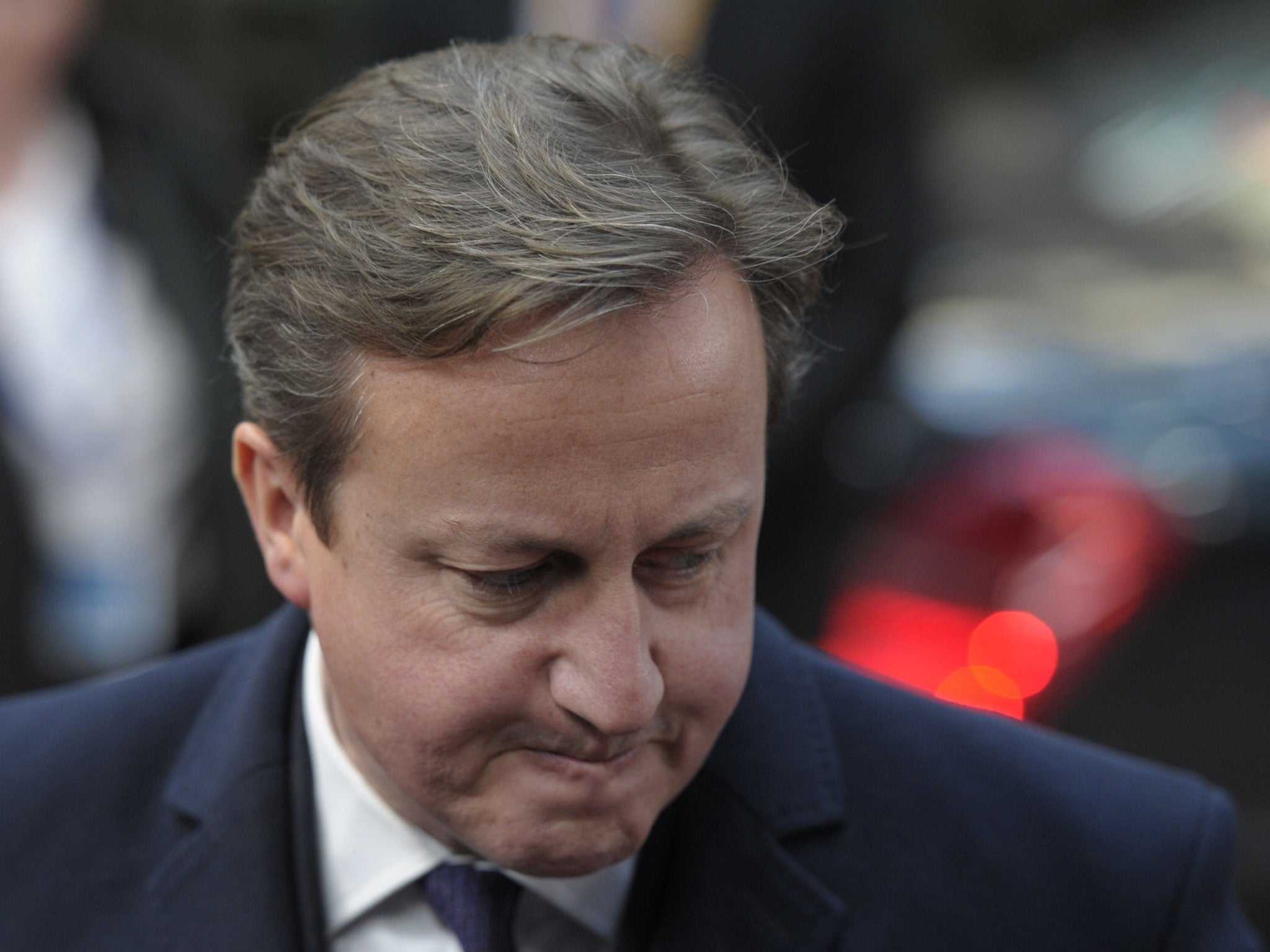David Cameron presses EU to restrict free movement of people from poorer member states
Prime Minister will urge his fellow EU leaders to learn lessons from the mistakes made when Romania and Bulgaria joined the 28-nation bloc in 2007

David Cameron will warn the European Union on Friday that it must restrict the free movement of people from poor countries that join the EU in future.
At a summit in Brussels, the Prime Minister will urge his fellow EU leaders to learn lessons from the mistakes made when Romania and Bulgaria joined the 28-nation bloc in 2007. His initiative will be seen as an attempt to reassure Conservative Eurosceptics, who are worried about a possible influx of Romanians and Bulgarians when they get the right to work in the UK on 1 January.
In future, Mr Cameron wants new member states to reach a certain level of income or economic output per head before their citizens enjoy full rights to freedom of movement throughout the EU - one of the Union's fundamental principles.
Curbing the rights of poor countries could prove controversial, as it would also undermine the EU's tradition of "solidarity" under which the richest members of the club help the poorest. Albania and Serbia are next in line to join the club and other potential members include Turkey and Ukraine.
British sources insisted Mr Cameron's proposal was not set in stone, and that he was floating ideas to kickstart a debate.
More than 70 Tory MPs have failed in an attempt to delay the 1 January start date for Romanians and Bulgarians. Tory tensions on the issue surfaced in a Commons debate on Thursday.
Philip Hollobone, a Eurosceptic, said voters would find it "disgusting" that the Government had failed to fulfill its "basic duty" to find out how many Bulgarians and Romanians planned to come to the UK next month. He warned that crime among Romanians in England was "really quite startling", claiming: "Romanians are seven times more likely to be arrested in London than a British national. Romanians account for more than 11 per cent of all foreign offenders, despite making up, at the moment, just a tiny proportion of residents. Last year, Romanians accounted for almost half of all arrests for begging, and one third of all arrests for pickpocketing in the capital."
But Tobias Ellwood, another Tory backbencher, expressed concern that the debate had deteriorated into the misplaced fears of "little Englanders". Calling for a "sensible and measured" discussion, he said: "We need to have a policy that is determined not by fear. And I genuinely worry that the debate around immigration ... has become very binary, it's the little Englanders if you like versus the multicultural, open-door approach."
Mark Reckless, a Eurosceptic, then suggested that Mr Ellwood's labels were "more a sign of your own narcissism than anything else."
As the summit got underway on Thursday, Mr Cameron claimed progress in his attempt to ensure that a new EU defence policy leaves member states rather than Brussels in the driving seat and does not undermine Nato.
The Prime Minister said: "It makes sense for nation states to cooperate over matters of defence to keep us all safer, but it isn't right for the EU to have capabilities - armies, air forces and the rest of it. We need to get that demarcation correct between cooperation, which is right, and EU capabilities, which is wrong. I am confident we will do so."
Brussels officials accused Downing Street of misrepresenting a plan for EU to authorise the use of airspace to fly drones, by implying the unmanned military aircraft would be under the EU's control. A European Commission spokesman said: "We have no intention of owning or procuring drones."
Anders Fogh Rassmussen, the Nato secretary general, who addressed the summit, said: "It is not Nato or the EU that possess these assets -- these capabilities are owned by individual nations. This is not about creating a European army."
British sources said they had secured more references to Nato and the role of member states in the summit's conclusions. But the statement is expected to stop short of saying that Nato has primacy.
A Downing Street source said: “Discussion went well and we've achieved what we set out to do - more references to member states; more references to Nato; no references to Europe's armed forces; less harmonisation. The [summit's] position is clear: it's nations not EU institutions that are in the driving seat on defence. And that's the way it will stay.”
Join our commenting forum
Join thought-provoking conversations, follow other Independent readers and see their replies
Comments
Bookmark popover
Removed from bookmarks